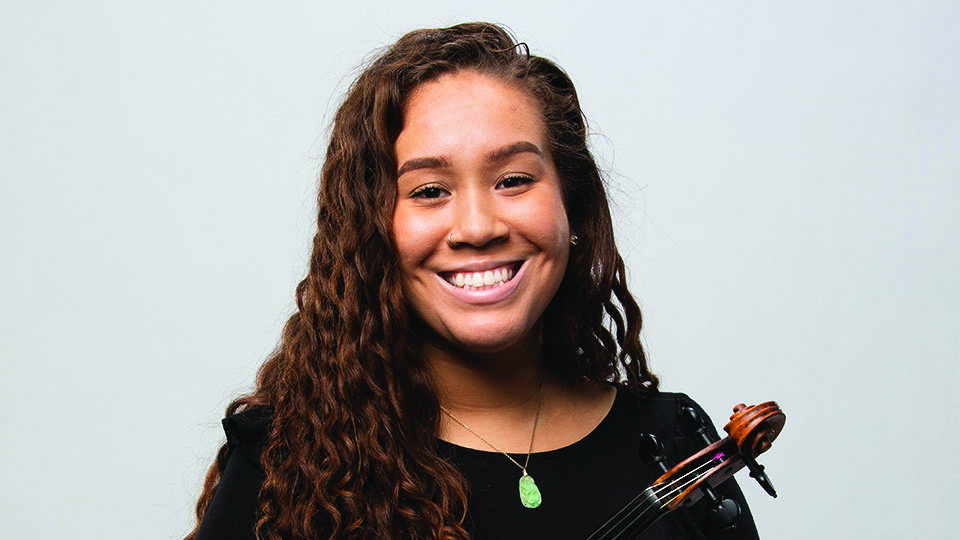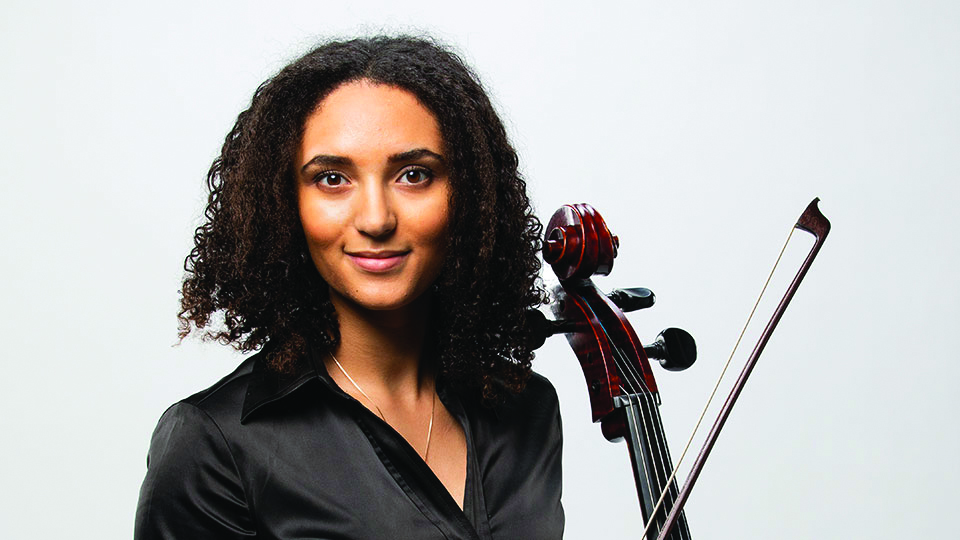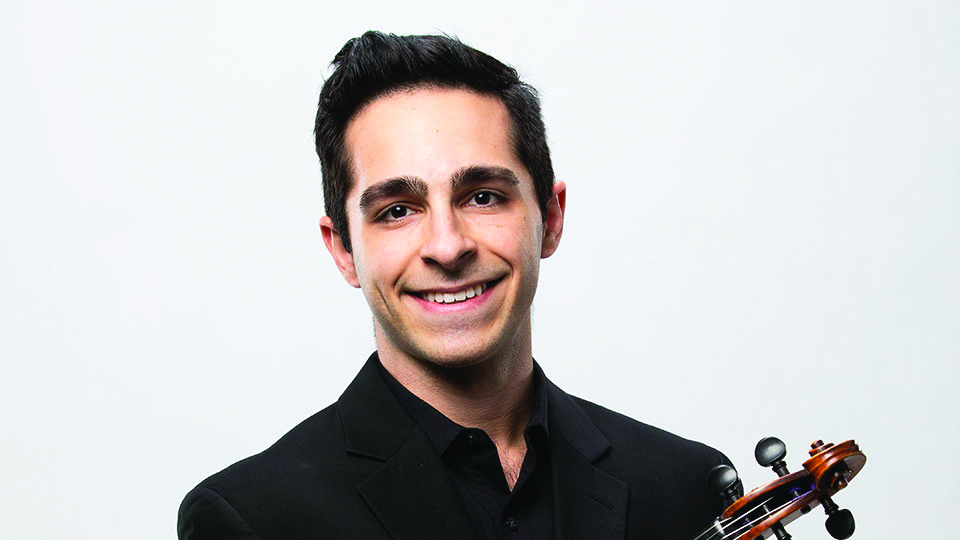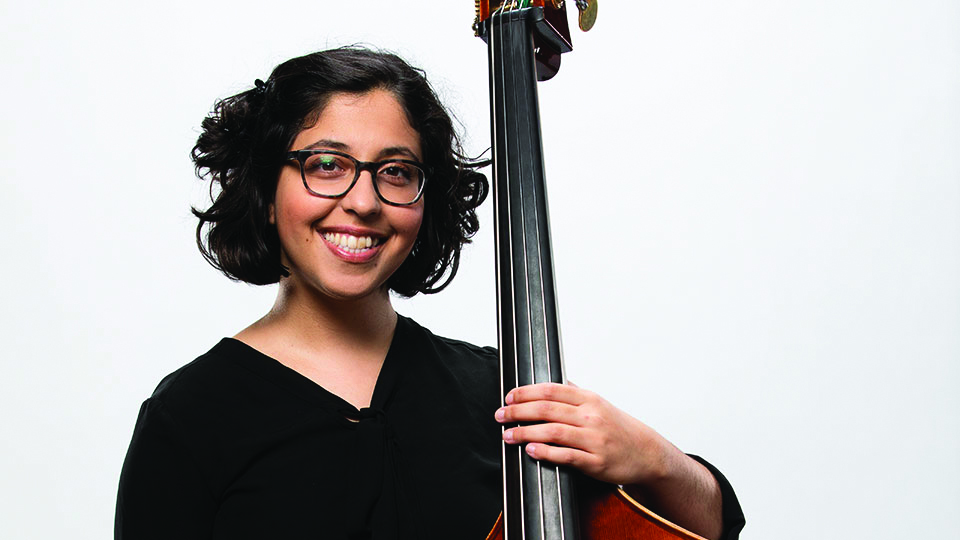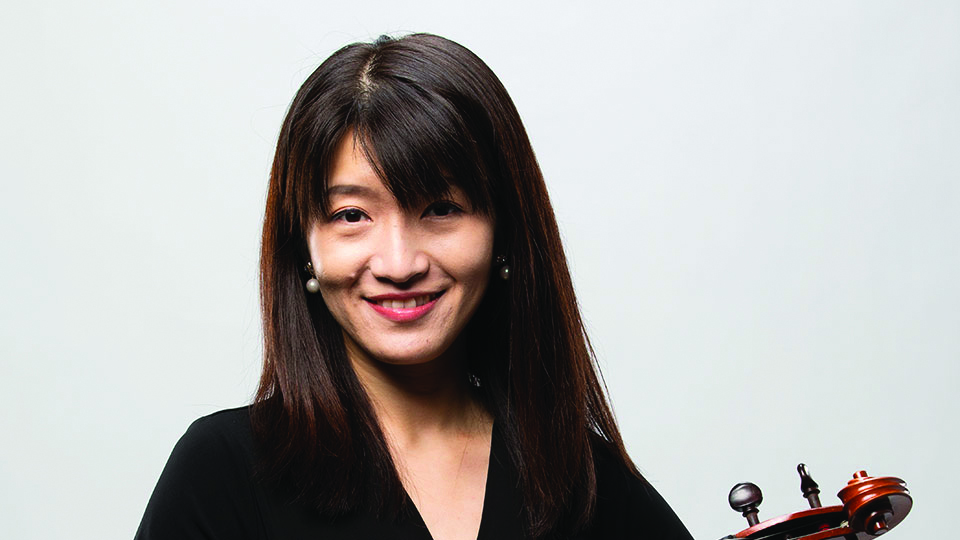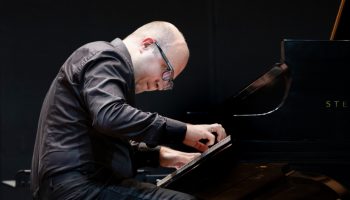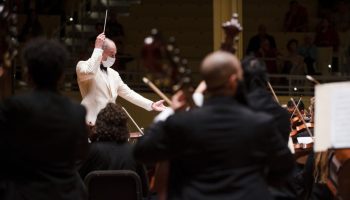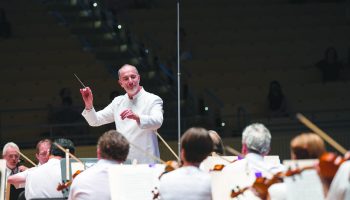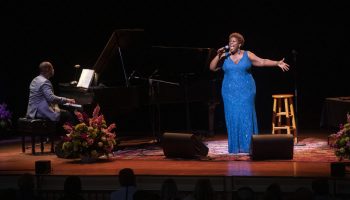Five new voices will arrive at Chautauqua Institution this season — and each will play a major role in the community’s future. They belong to the 2019 Chautauqua Diversity Fellows Program: five talented student musicians who will perform with the Chautauqua Symphony Orchestra this summer.
Camellia Aftahi, Arman Nasrinpay, Alexis Shambley, Anita Graef and Dan Wang are enrolled in the University of Cincinnati’s graduate-level music program. Each student is also part of the Cincinnati Diversity Fellowship Program — a competitive program that allows underrepresented student musicians to perform with the Cincinnati Symphony Orchestra while working on their master’s degrees.
Starting last year, the Institution has offered the CSO Fellows Program in partnership with the Cincinnati program. The program is still new, but students and staff alike have high hopes for its impact.
To Deborah Sunya Moore, vice president of visual and performing arts, the program is more than just an opportunity for students — it is integral to the growth of the Chautauqua community.
“By having a summer orchestra, we’ve always impacted lives here on the grounds,” Moore said. “But that also means that we’ve only impacted the lives of the people who have been able to come to the grounds and pay for a ticket.”
Moore hopes to address that access barrier, starting with the orchestra itself.
“With the Fellows, what we’re trying to work on is to quite literally change who can be in a symphony orchestra — to broaden and diversify that,” Moore said.
Anita Graef, a CSO Fellow who has played cello since she was four years old, hopes to inspire new pathways to music through her performances.
“At least for me, visibility is really important,” Graef said. “I really hope to provide some sort of example for somebody else. You know, when I was little, it would have meant so much to me if I could see someone who looked like me … playing the same instrument, the same music that I play.”
American orchestras are notoriously homogenous. A League of American Orchestras study found that in 2014, less than 15% of symphony orchestra musicians were people of color. Only 2.5% of the musicians were Hispanic or Latino; and only 1.8% were African American.
Diversity programs aim to better reflect America’s diverse population in its orchestras. Chautauqua’s program is no exception, Moore said.
“If you look at our own Chautauqua Symphony Orchestra, we’re extremely proud of it. But it’s mostly white — and that doesn’t reflect society today,” Moore said. “What we really want is for this great music … to have a chance to be relevant and to reflect everyone that we serve.”
That work, Moore said, needs to begin within the Institution.
“If we want to keep evolving the people that we serve and broaden and diversify that, then we need to broaden and diversify ourselves,” she said.
Graef also believes that the CSO Fellows are part of an evolving musical world — and that each student has a unique, important perspective.
“We all come from such different backgrounds, and I think that each of us can provide an individual perspective on the music world, how to be a musician — especially in such a quickly changing environment — and how to keep classical music relevant to a large swath of people,” she said.
These voices will unite in the CSO. For CSO Fellow Arman Nasrinpay, symphony music is all about strong individual voices joining together to form an even stronger collective sound.
“Everyone has a very, very important part, but the collective is a lot more important,” Nasrinpay said. “What you can do with that opens a lot of doors; one person can only do so many things, so having more voices just enhances the experience for everybody.”
On a smaller scale, members of last year’s inaugural class of CSO Fellows have already earned full-time orchestra positions. Moore said she’s proud of these students and of the program itself: small but important parts of a huge, nationwide project.

